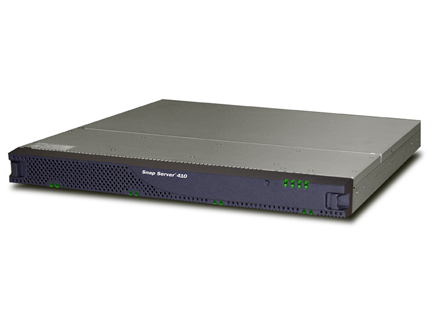NAS appliances for SMEs

Network attached storage (NAS) appliances are proving increasingly popular with small to medium-sized businesses (SMEs), and for good reason. They're a lot less complicated and quicker to deploy than a fully fledged storage area network (SAN) and, in general, work out cheaper and easier to manage than a conventional general-purpose file server. These advantages are not lost on the storage vendors, nearly all of whom sell NAS appliances of some kind or other.
However, NAS boxes vary widely, with products available to handle everything from home data streaming to file sharing on large enterprise networks with thousands of users. Prices can also vary enormously, making choosing a suitable appliance far from easy. So we've done some of the legwork for you, collecting a set of products designed for small to medium-sized networks and putting them through their paces in ZDNet's labs.
What we tested
For this group test we asked five leading storage vendors to supply us with a NAS appliance suitable for use by a medium-sized business. More specifically we asked for rack-mount products offering at least one terabyte (1000GB) of storage that could be shared on mixed Windows, Apple Mac and Linux/Unix networks.
We also asked for Gigabit Ethernet connectivity and built-in support for RAID 5 data protection. That's where data is striped across multiple disks in an array together with error correction information, enabling the array to continue functioning even if one of the disks stops working.
We made no stipulation as to the software involved, and in the event were sent three Linux-based appliances, one running Windows Storage Server 2003 and a Snap Server from Overland Storage that employs custom software called GuardianOS. All made use of SATA disks. All met our requirements, performed well in the labs and were relatively easy to set up and manage. However, they were far from equal — as you'll find out when you read the detailed reviews. Turn to the next page to find out which NAS appliance stood out from the rest.
Editors' choice
Despite meeting our basic criteria there were big differences in what the five NAS appliances we evaluated were able to deliver, both in terms of functionality and performance. Based purely on the latter, the Windows-based Iomega StorCenter Pro NAS 450r came out on top, but at a hefty price for a device offering just 1TB of storage space. Some of the others weren't too far behind, with the Snap Server 410 and Synology Rack Station RS408 both impressing us in terms of the speed with which they performed their file-sharing duties.
The Synology appliance also had the nicest interface and was by far the easiest to configure. We also liked the fact that we could choose what disks to put in it, making the RS408 a good choice for the smaller business. However, it lacked some of the advanced features found on the Snap Server 410 from Overland Storage — although some of those were optional extras.

Taking all this into account we eventually awarded the Editors' Choice to the Snap Server 410, for its mix of storage capacity, features and performance in an easy-to-configure appliance that's well within the reach of small and medium-sized businesses.